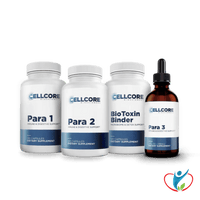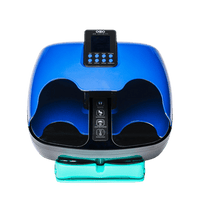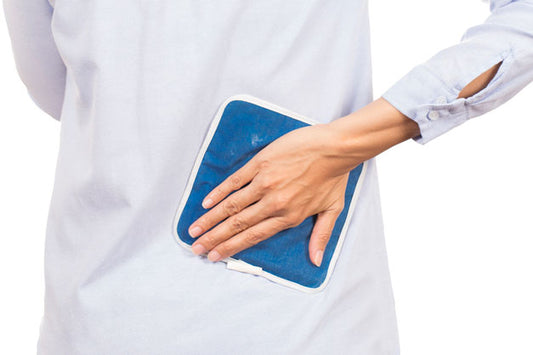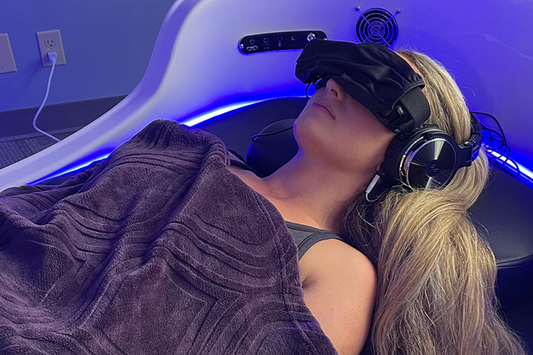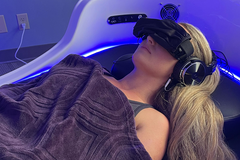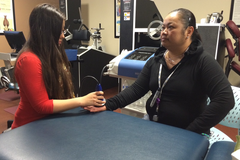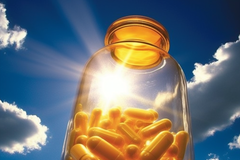Stress, anxiety, and depression are prevalent in today's society, especially during these unprecedented times with the COVID pandemic. If you are currently experiencing any of these symptoms, conditions, or disorders, please know that you are not alone. People across the world feel what you are feeling, and you are not the only one.
Stress
Stress is something most of us feel every day, and that is a good thing, until it's not. There are two types of stress, "eustress" and "distress." Eustress is also known as good stress. Getting a new job, having a child, and getting married are all examples of good stress. Experiencing eustress causes us to adapt and grow as people throughout our lives. Distress is also known as negative stress. This is what we typically think of when we hear the word stress. Unemployment, interpersonal relationship issues, a death in the family and sleep problems are all examples of negative stress. The purpose of stress is to help us navigate the events of our lives and dangers of the world and react quickly. If there is a threat to our safety or well-being, our bodies experience stress and produce stress hormones in order to trigger a fight-or-flight response to protect us.
There are 3 major stress hormones: adrenaline, cortisol, and norepinephrine.
Adrenaline is known as the "fight-or-flight" hormone. It is responsible for quick reactions to stressful situations. It supplies you with a surge of energy and an increases your heart rate. This hormone causes you to, for example, swerve back into your lane to narrowly avoid a collision and often results in your heart pounding, palms sweating, tense muscles and panicked breathing afterward. Your mental focus also increases with the increase of adrenaline. This can cause what we call "tunnel vision" such that you very quickly become hyper-focused on the situation at hand. With tunnel vision and being hyper-focused, you to take in only the amount of information that you absolutely need and ignore everything else.
Norepinephrine is similar to adrenaline in its actions. However, the brain and the adrenal glands produce norepinephrine, while the source of adrenaline is only the adrenal glands. Norepinephrine's purpose is to be a back-up system in case your adrenals are not working well and life-saving action still needs to be taken.
Cortisol is known as the stress hormone. It deals with longer term stress situations. While adrenaline and norepinephrine's effects occur in seconds, cortisol's effects occur over minutes to hours. This stress hormone preserves certain bodily functions, while down-regulating others. Cortisol prioritizes the processes in our bodies that keep us alive. Blood pressure and fluid balance are key in maintaining our lives in the wake of a stressful event. Digestion, reproduction, immunity and growth are processes that require a lot of energy, but are not pertinent to our survival when immediate danger is present.
When we are constantly under stress, our bodies constantly produce cortisol. You can see how this is an issue because cortisol suppresses functions that are vital to our lives over time. When there is no immediate danger, these actions can become harmful to our well-being. Obesity, diabetes, high blood pressure, fertility issues, illness, chronic digestion problems and more all have links to chronic cortisol release.
Anxiety
"Anxiety is an emotion characterized by feelings of tension, worried thoughts and physical changes including increased blood pressure. People with anxiety disorders usually have recurring stressful thoughts or persistent concerns. They may avoid certain situations out of worry. They may also have physical symptoms such as sweating, trembling, dizziness or a rapid heartbeat." (https://www.apa.org/topics/anxiety) This definition of anxiety may seem like the description of stress, however, there are some important distinctions between the two. The source of stress occurs externally, while the source of anxiety can be harder to pin down. Sometimes, anxiety has no source at all, but occurs internally within us due to several factors.
When anxiety begins to disrupt our activities of daily living is when it becomes a mental health disorder. There are many types of disorders included within the category of anxiety. Read below to learn more.
Generalized Anxiety Disorder (GAD)
- Consistent worry about a variety of factors
- Diagnosis of GAD occurs when the person finds it difficult to control worry for more days than not for at least six months and has three symptoms of
- Feeling nervous, irritable, or on edge
- Having a sense of impending danger, panic or doom
- Having an increased heart rate
- Breathing rapidly (hyperventilation), sweating, and/or trembling
- Feeling weak or tired
- Difficulty concentrating
- Having trouble sleeping
- Experiencing gastrointestinal (GI) problems
Panic Disorder
- Sudden and repeated attacks of fear or panic that often have no identifiable trigger and last for several minutes
- A strong emotional and physical reaction occurs
- Signs and symptoms
- Sudden and repeated panic attacks of overwhelming anxiety and fear
- A feeling of being out of control, or a fear of death or impending doom during a panic attack
-
Physical symptoms
- Pounding or racing heart
- Sweating
- Chills
- Trembling
- Breathing problems
- Weakness or dizziness
- Tingly or numb hands
- Chest pain
- Stomach pain
- Nausea
- An intense worry about when the next panic attack will happen
- A fear or avoidance of places where panic attacks have occurred in the past
Phobia Disorder
- Similar to GAD and panic disorder, however, this disorder has a specific source
- Source of your fear is generally not dangerous, and the fear is irrational
- Agoraphobia, acrophobia, dentophobia
OCD
- Repetitive unwanted thoughts and irrational excessive urges to perform certain actions
- Perseveration (unable to stop a behavior)
- Irrational belief that if a habitual, "ritualistic" behavior is not completed, something bad will happen
Separation anxiety
- Separation anxiety is normal for babies and toddlers, but characteristic of a disorder when it is excessive in relation to a person's developmental stage and causes a significant disruption in daily living
- Symptoms:
- Recurrent and excessive distress about anticipating or being away from home or loved ones
- Constant, excessive worry about losing a parent or other loved one to an illness or a disaster
- Constant worry that something bad will happen, such as being lost or kidnapped, separating from parents or other loved ones
- Refusing to be away from home because of fear of separation
- Not wanting to be home alone and without a parent or other loved one in the house
- Reluctance or refusing to sleep away from home without a parent or other loved one nearby
- Repeated nightmares about separation
- Frequent complaints of headaches, stomachaches or other symptoms when anticipation of separation from a parent or other loved one occurs
Illness anxiety
- Formerly known as hypochondria
- Worrying excessively that you are seriously ill
- The belief that normal body sensations indicate serious illness
- The worrying causes significant disruption in your life
Social Anxiety
- Extreme fear in social setting
- Trouble talking to people, meeting new people, and attending social gatherings
- Fear of being judged by others to the extent that it disrupts your ability to go to work, go to school, or have close relationships
- Symptoms
- Blushing
- Nausea
- Excessive sweating
- Trembling or shaking
- Difficulty speaking
- Dizziness or lightheadedness
- Rapid heart rate
Psychological symptoms may include:
- Worrying intensely about social situations
- Worrying for days or weeks before an event
- Avoiding social situations or trying to blend into the background if you must attend
- Worrying about embarrassing yourself in a social situation
- Worrying that other people will notice you are stressed or nervous
- Needing alcohol to face a social situation
- Missing school or work because of anxiety
PTSD
- Mental health disorder that occurs after a traumatic event
- Heightened sense of danger
- Often affects war veterans, but can happen to anyone at any age
- Symptoms
- Intrusion
- Flashbacks where one relives the event over and over
- Vivid, unpleasant memories of the event
- Frequent nightmares about the event
- Intense mental or physical distress when one thinks about the event
- Avoidance
- Avoidance, as the name implies, means avoiding people, places, or situations that are reminders of the traumatic event.
- Arousal and reactivity
- Trouble concentrating
- Startling easily and having an exaggerated response when startled
- A constant feeling of being on edge
- Irritability
- Bouts of anger
- Cognition and mood
- Negative thoughts about oneself
- Distorted feelings of guilt, worry, or blame
- Trouble remembering important parts of the event
- Reduced interest in activities you once loved
- Intrusion
Depression
"Depression is a common and serious medical illness that negatively affects how one feels, the way one thinks and how one acts. Fortunately, it is also treatable. Depression causes feelings of sadness and/or a loss of interest in activities one once enjoyed. It can lead to a variety of emotional and physical problems and can decrease one's ability to function at work and at home." (https://www.psychiatry.org/patients-families/depression/what-is-depression) There are many types of depression that some may not even know exist. Read more below.
Major Depression
- Persistent and intense feelings of sadness
- Also known as clinical depression
To be diagnosed (according to Diagnostic and Statistical Manual of Mental Disorders, Fifth Edition)
- One must experience a change in one's previous functioning
- Symptoms must occur for 2 or more weeks
- At least one symptom is depressed mood or loss of interest or pleasure
One must also experience 5 or more of the following symptoms in the 2-week period:
- Feel sad or irritable most of the day, nearly every day.
- Less interested in most activities you once enjoyed.
- Suddenly lose or gain weight or have a change in appetite.
- Have trouble falling asleep or want to sleep more than usual.
- Experience feelings of restlessness.
- Feel unusually tired and have a lack of energy.
- Feel worthless or guilty, often about things that wouldn’t normally make you feel that way.
- Have difficulty concentrating, thinking, or deciding.
- Think about harming yourself or suicide.
- Can be triggered or come on for seemingly no reason
Persistent Depression
- AKA Dysthymia
- Key difference from major depression is that it is chronic (symptoms on most days for at least 2 years)
- Symptoms
- Persistent feelings of sadness and hopelessness
- Sleep problems
- Low energy
- A change in appetite
- Difficulty concentrating
- Indecisiveness
- A lack of interest in daily activities
- Decreased productivity
- Poor self-esteem
- A negative attitude
- Avoidance of social activities
Bipolar disorder
- Also known as manic depression
- Symptoms
- Shifts in mood
- Changes in
- Energy
- Activity levels
- Sleep patterns
- Behaviors
- Often result in trouble at work, school and relationships
- Not always a distinct depressive or manic episode sometimes just experience a period of volatile mood changes
- Depressive episode symptoms
- Feelings of emptiness or worthlessness
- Loss of interest in once pleasurable activities such as sex
- Behavioral changes
- Fatigue or low energy
- Problems with concentration, decision-making, or forgetfulness
- Restlessness or irritability
- Changes in eating or sleeping habits
- Suicidal ideation or a suicide attempt
- Manic Episode symptoms
- Long periods of intense joy, excitement, or euphoria
- Extreme irritability, agitation, or a feeling of being “wired” (jumpiness)
- being easily distracted or restless
- Racing thoughts
- Speaking quickly (often so fast others cannot keep up)
- Taking on more new projects than one can handle (excessively goal directed)
- Having little need for sleep
- Unrealistic beliefs about one’s abilities
- Taking part in impulsive or high-risk behaviors such as gambling or spending sprees, unsafe sex, or making unwise investments
Depressive Psychosis
- AKA delusional depression, psychotic depression, major depressive disorder with mood-congruent psychotic features, and major depressive disorder with mood-incongruent psychotic features
- Basically Major Depression with psychotic symptoms such as delusions, hallucinations and paranoia
Perinatal/postpartum depression
- Happens during or after giving birth
- Different for each person and can change from day to day
- Symptoms
- Feel sad or cry a lot, even when not knowing why.
- Exhaustion but can’t sleep.
- Sleep too much.
- Can’t stop eating, or aren’t interested in food at all.
- Have various unexplained aches, pains, or illnesses.
- Don't know why you’re irritable, anxious, or angry.
- Moods change suddenly and without warning.
- Feel out of control.
- Have difficulty remembering things.
- Can’t concentrate or make simple decisions.
- Have no interest in things you used to enjoy.
- Feel disconnected from your baby and wonder why you’re not filled with joy like you thought you’d be.
- Everything feels overwhelming and hopeless.
- Feel worthless and guilty about your feelings.
- Feel you can’t open up to anyone because they’ll think you’re a bad mother or take your baby, so you withdraw.
- Want to escape from everyone and everything.
- Have intrusive thoughts about harming yourself or your baby.
Seasonal Affective Disorder (SAD)
- Major depression that occurs seasonally
- Usually in winter
- Linked to lack of vitamin D and/or exposure to light
- Those who live in northern latitudes experience it more frequently
Situational Depression
- Short-term stress-related depression
- Can develop after a traumatic event or series of events
- Symptoms
- Sadness
- Hopelessness
- Lack of enjoyment in normal activities
- Regular crying
- Constant worrying or feeling anxious or stressed out
- Sleeping difficulties
- Disinterest in food
- Trouble focusing
- Trouble carrying out daily activities
- Feeling overwhelmed
- Avoiding social situations and interaction
- Not taking care of important matters like paying your bills or going to work
- Thoughts or attempts at suicide
This information is not a complete guide to stress, anxiety, and depression, but we hope it can help you in caring for yourself or a loved one. If you have questions, please contact us at https://info.healthybeings.com/contact-us.
If there is an emergency mental health issue, call 911.
Sources
- https://www.huffpost.com/entry/adrenaline-cortisol-stress-hormones_n_3112800
- https://www.mentalhealth.org.uk/a-to-z/s/stress#:~:text=When%20we%20encounter%20stress%2C%20our,respond%20quickly%20to%20dangerous%20situations.
- https://www.healthline.com/health/eustress#good-stress
- https://www.mentalhelp.net/stress/types-of-stressors-eustress-vs-distress/
- https://adaa.org/understanding-anxiety/generalized-anxiety-disorder-gad
- https://www.nimh.nih.gov/health/publications/panic-disorder-when-fear-overwhelms/index.shtml
- https://www.mentalhealth.gov/what-to-look-for/anxiety-disorders/phobias#:~:text=A%20phobia%20is%20a%20type,There%20are%20many%20specific%20phobias.
- https://www.healthline.com/health/phobia-simple-specific
- https://www.healthline.com/health/ocd/social-signs
- https://www.mayoclinic.org/diseases-conditions/separation-anxiety-disorder/symptoms-causes/syc-20377455
- https://www.mayoclinic.org/diseases-conditions/illness-anxiety-disorder/symptoms-causes/syc-20373782#:~:text=Symptoms%20of%20illness%20anxiety%20disorder,serious%20disease%20or%20health%20condition
- https://www.healthline.com/health/anxiety/social-phobia
- https://www.healthline.com/health/seasonal-affective-disorder
- https://www.healthline.com/health/depression/postpartum-depression
- https://www.healthline.com/health/depression/perinatal-depression
- https://www.healthline.com/health/depression/major-depression-with-psychotic-features
- https://www.healthline.com/health/depression/manic-depression-bipolar-disorder
- https://www.healthline.com/health/dysthymia
- https://www.healthline.com/health/clinical-depression
- https://www.healthline.com/health/post-traumatic-stress-disorder
- https://www.healthline.com/health/depression/situational-depression
